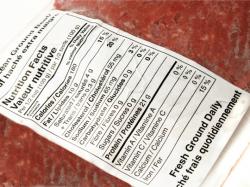Meat Institute President & CEO Testifies At COOL Hearing
June 30, 2015 | 1 min to read

Meat Institute President and CEO Barry Carpenter last week testified before the Senate Committee on Agriculture, Nutrition and Forestry in a hearing to address the implications of country-of-origin labeling (COOL) and trade retaliation for America's farmers, ranchers, businesses and consumers. In his testimony, Carpenter urged the Senate to vote to repeal mandatory COOL for beef, pork and chicken, calling repeal the "one, guaranteed path" to bring the U.S. into compliance with its World Trade Organization obligations and avoid $3 billion in annual penalties from Canada and Mexico. Carpenter described COOL as a "costly and burdensome" protectionist measure that has not been shown to measurably increase consumer demand for meat products. Instead, Carpenter stated that COOL is used as a non-tariff trade barrier intended to exclude Canadian and Mexican livestock from the U.S. market.
Meanwhile, Senate Agriculture Committee Ranking Member Debbie Stabenow (D-MI) discussed legislation that does not repeal beef and pork as covered commodities under current law and would require US voluntary programs to employ "born, raised and slaughtered" as the criteria for product of US labeling. Canada and Mexico, however, have stated that repealing COOL is the only way for the U.S. to stave off billions in retaliatory tariffs. Carpenter noted that proposals for voluntary labeling discussed in the hearing do not repeal the provisions making beef, pork and chicken covered commodities in the law and that the Secretary of Agriculture currently has broad statutory authority to write all manner of voluntary programs.
To read the rest of the story, please go to: North American Meat Institute
